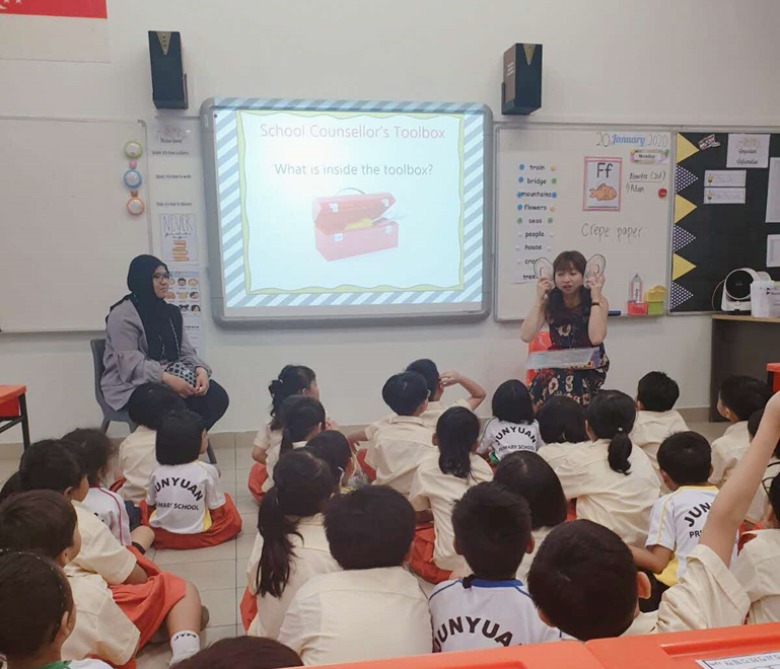For as long as Dr Lim Sun Sun can remember, her son had always shown an affinity for cars.
Apart from scouring books and the Internet, he would also collect replicas and toy models of his favourite automobiles as well as spend hours talking about his love for all things four-wheeled.
Her son also took the opportunity to connect with car enthusiasts by sharing on Instagram photos he had taken of notable cars he encountered – almost always with her phone as he did not own one.
It was here that she observed a peculiar trend—her son started receiving a flurry of encouraging feedback and “likes” from car aficionados and automobile experts.
In no time at all, he had amassed a healthy following online.
What began as an innocent childhood interest had morphed into a positive life experience, thanks to the power of social media.
“Instagram allowed me to see a side of my son that I would not have otherwise known,” shared Dr Lim who is the head of Humanities, Arts and Social Sciences at the Singapore University of Technology and Design.
“It provided me a window into the way he views himself and the world which is what every parent wants at the end of the day – to understand their child.”
So rather than viewing the Internet warily and warning children off the online world completely, she urges parents to embrace and understand what their children are doing in the online space.
Tip 1: Create shared spaces online
Technology is an integral aspect of everyday living thus, parents will not be able to shield their teenagers away from a digital environment.
Dr Lim cites the case of parents who strictly disallow their children from setting up social media accounts in the hopes that this would prevent them from interacting and making friends with strangers online.
Yet, more often than not, these children end up creating “ghost” accounts without their parents’ knowledge and as a result, end up being more susceptible to the dangers of the online world.
“The world our kids are growing up in is vastly different from the one that we have experienced,” she explained.
“Social media and the Internet have become integral components in the way children form their identities so parents should not deprive their children from discovering their inner-self.”
But how can parents help their children stay safe online?
First, find out the social media platforms that the child is actively engaged in.
Then, get on one to two of these platforms and make postings on them. Show them to the children, and find out from them what the latest social media trends are. If they are agreeable, add them as “friends”.
This will provide parents with a glimpse into their children’s lives, along with the way they perceive themselves and the world online.
Although it may be very tempting to add their children on all platforms, Dr Lim pointed out that parents should not be too overbearing as this might put their children off.
Parents should also create shared spaces and online interests where children feel at ease communicating, sharing and expressing themselves with their parents.
They can do this by taking advantage of the “messenger” function that most social media platforms have.
For example, if a father who adds his daughter on Instagram realises that she is a big fan of rock music, he can slowly build a rapport with her by sharing links, photos or articles online via the app’s messenger function.
“By creating shared spaces online, parents provide their children with safe zones where they feel comfortable enough to express themselves in ways that they might not necessarily do in real life,” noted Dr Lim.
Parents should steer clear of using scare tactics, as there is only so much fear one can instil in children before they see right through it. Instead, capitalise on these shared spaces online to address issues pertaining to digital literacy, she added.
For example, if there is a case of online sex scams where victims are conned of their dignity and money, parents can talk to their children about it to raise awareness and allow their children to be aware that these are real concerns.
Tip 2: Fine line between surveillance and guidance
Being privy to a child’s social media presence also means that parents may have access to what they are ‘following’ online.
This is where parents need to strike a fine balance between surveillance and showing care, noted Dr Lim.
For example, if parents see their children behaving in an alarming manner online, they shouldn’t jump at the opportunity to confront their children. This will only force their children to withdraw, or at worst—set up alternative accounts from which they exclude their parents.
Instead, parents need to address the issue in a sensitive and empathetic manner to trace the root of the problem.
“Very often, a child’s behaviour online is a result of friends they hang out with and the type of media influences they are exposed to. Parents should try to address these instead of jumping the gun right away,” she said.
Tip 3: Bridge technology gap together
When it comes to digital literacy, it is perfectly normal for parents to have different levels of competency and engagement.
One useful way to bridge the technology gap with children is to learn along with them, and even learn from them.
If a parent is planning to start an Instagram account but has no clue how to do so, they can approach their child for guidance. This way, parents can find out more about the different platforms that their children are using.
“I think it is important to create that shared space with your child where you can be perfectly honest and say “I don’t know what is going on, can you please teach me?” she suggested.
Tip 4: Real life experience trumps the digital world
As with anything in life, parents ought to be role models – offline and online.
So, for instance, if parents do not want their child to act or pose suggestively online or to make antagonistic comments, then they shouldn’t do the same.
While some parents may not be as digitally proficient as their children, they still have a lot of guidance to offer because of their life experiences.
As Dr Lim explained, social media is merely a medium by which children experience the harsh realities and social pressures of life, which their parents know all too well about.
Parents have the benefit of life experience and the emotional maturity to understand and guide their children through not just the intricacies of social media, but life as a whole.
“The online world might seem like a daunting place for parents but the truth is that it is a reflection of real life. As such, parents are more than capable to embrace, guide and nurture their children in their journey through life.”
As the world moves towards a highly digital society where technology lies at the heart of tomorrow’s world, teaching children valuable lessons in digital literacy is paramount.
“Regardless of technology, we must never forget the values that make us human. Digital literacy will help pave the way for a smarter, inclusive and more empathetic society,” said Dr Lim.



.jpg)
.jpg)

